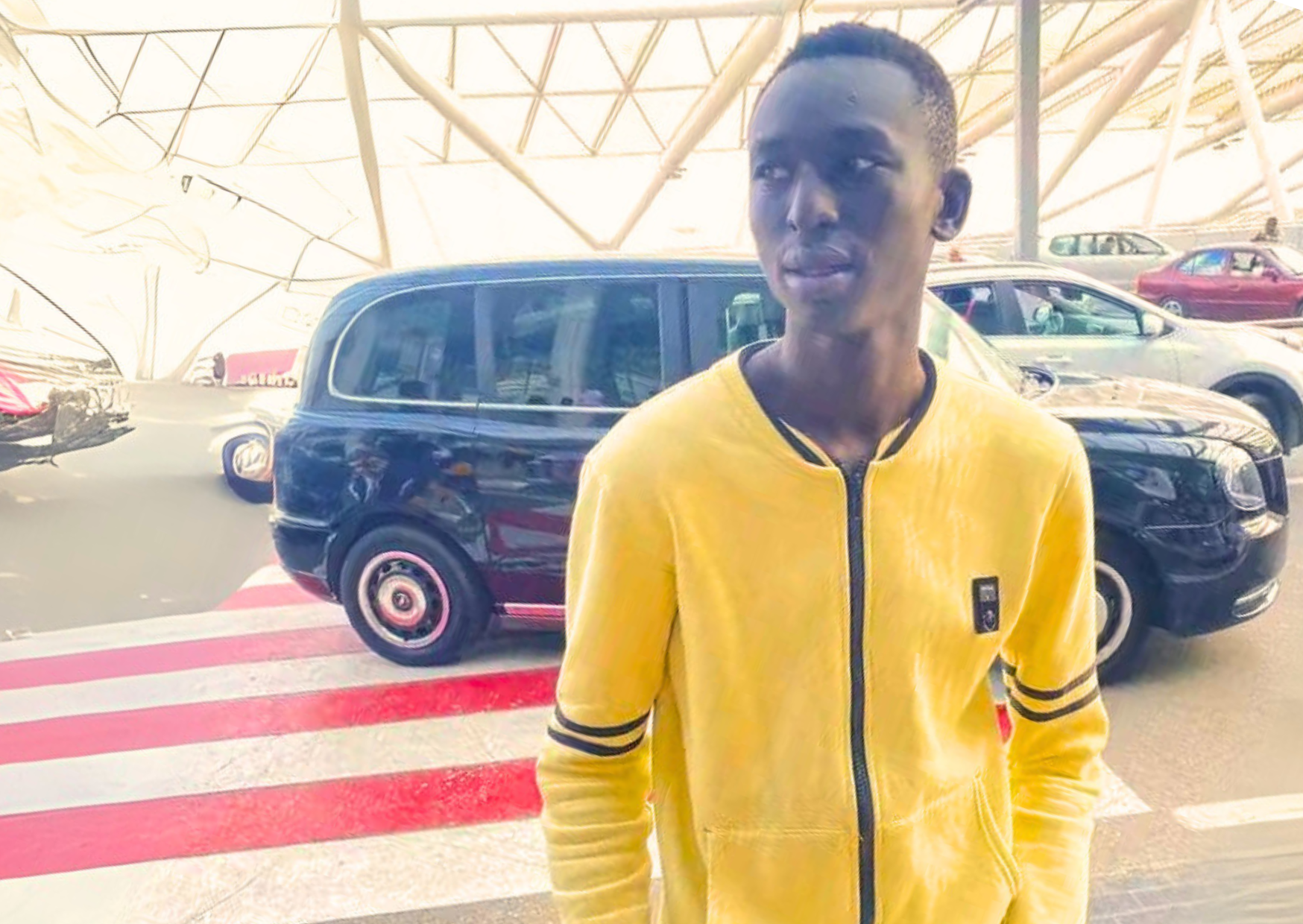The story of Ariad K.
Crete, Greece. On April 30, 2025, Ariad, a 18-year-old refugee from South Sudan will stand trial in Chania, on the Greek island of Crete. He faces charges of smuggling and the possibility of a life sentence—all because he helped steering the boat during a desperate journey across the Mediterranean. He is one of around 50 young Sudanese refugees, aged 17 to 21, currently held in Avlona Youth Prison on smuggling charges, threatened with life sentences.
Ariad K. is a young man from South Sudan. Like thousands of others, his life was forever changed by the civil war that erupted in 2013. During the violence, he was shot under his left arm and underwent emergency surgery in a hospital amidst the chaos. He survived—but life would never be the same.
In 2016, war struck South Sudan again. While people fled for their lives, Ariad was caught in a car accident, breaking his already weakened left arm. With the lack of any possibility of recovery in a collapsing health system and fearing for his life, he fled his homeland.
Ariad went to Egypt in search of medical treatment. But without financial support, he couldn’t afford the surgery his arm desperately needed. He registered with UNHCR as a refugee and requested medical assistance, but no help ever came. To survive, he worked any job he could find: cleaning houses, doing construction—anything that paid, even a little. After a year and a half of struggle, still in pain and with no treatment, Ariad made the difficult decision to attempt the journey to Europe.
He traveled to Libya, where he labored in harsh conditions to save money. Eventually, he paid 8,000 Libyan dinars to a smuggler to cross the sea to Europe. But instead of departure, he was held in a makeshift camp for nearly 30 days—without enough food, without clean water, and cut off from his family, as his phone was taken from him, and with it, his last connection to home.
One night, under the cover of darkness, they forced Ariad and a small group—four Sudanese men and others from different countries—onto a boat and told the four Sudanese men to drive the boat. Ariad tried to protest. He showed his injured arm, explained he couldn’t drive. But the Libyan guys beat them, demanding they steer the boat. Eventually, one of the men gave in and agreed to take the wheel.
They spent two days at sea. When the man steering the boat became exhausted, Ariad tried to help despite his injury—he couldn’t steer properly, but he managed for a while and helped distribute food and fuel, doing whatever he could to keep the boat moving. His only goal was survival—his own, and that of the others on board.
Eventually, a Greek rescue ship found them and brought them to Crete. But their relief was short-lived. At dawn on 30.11.24, Greek police arrived and arrested the four Sudanese passengers—Ariad among them—while letting the other passengers go.
All four were charged with “facilitating the unauthorized entry of 70 third-country nationals”, with the aggravating circumstances of having endangered the other passengers’ lives and acting for profit. If convicted, Ariad faces harsh penalties—at least 10 years of imprisonment and a fine of at least 30.000 euros for each transported person. In total, he could be sentenced to several hundred years in prison and fines exceeding two million euros.
Under Greek law, anyone who steers a boat or takes on any other role onboard fulfills the legal definition of the crime of ‘smuggling’. The penalty for smuggling is multiplied per transported individual. As a result, simply driving or assisting the driver of a boat or car carrying undocumented migrants can lead to decades-long sentences, depending on the number of people onboard, regardless if the person is part of the group of smuggled migrants themselves.
For risking everything to save their own lives and the lives of those on board, they now face life sentences.
On March 6, 2025, nine of the 50 teenagers currently held in Avlona Youth Prison were already sentenced to life in prison and fined 3 to 4 million euros each—after trials that lasted an average of just ten minutes in the Heraklion court on Crete. They teenagers told us that the despair and fear among them in prison are overwhelming.
By prosecuting Ariad and others like him, Greece is in clear breach of international law. According to the UN Anti-Smuggling Protocol, to which Greece is a signatory, states shall not criminally prosecute migrants solely for having been smuggled. This is especially critical for forcibly displaced people who have no choice but to rely on smugglers to access protection. The UN Protocol requires that anti-smuggling measures be applied non-discriminatorily and must not undermine states’ legal obligations, including those under the Geneva Refugee Convention. Additionally, this criminalisation practice neglects the duty to protect potential trafficking victims under the UN Trafficking in Persons Protocol, particularly in cases where individuals were coerced into roles such as steering boats.
In reality, this criminalization practice results in migration itself being treated as a serious crime.
Ariad and the other boys are simply teenagers who fled war in search of a better future. Now, they face the prospect of spending more years behind bars than they have lived so far.
This criminalization must end—once and for all. Stop punishing people for steering boats!
We demand
- to drop the smuggling charges against Ariad as in line with international law
- freedom for all those imprisoned for “boat driving”
- an end to the criminalization of migration and the incarceration of people on the move.
